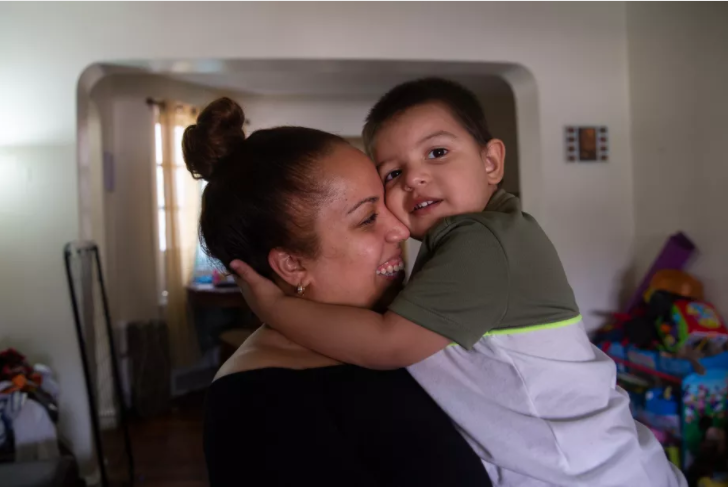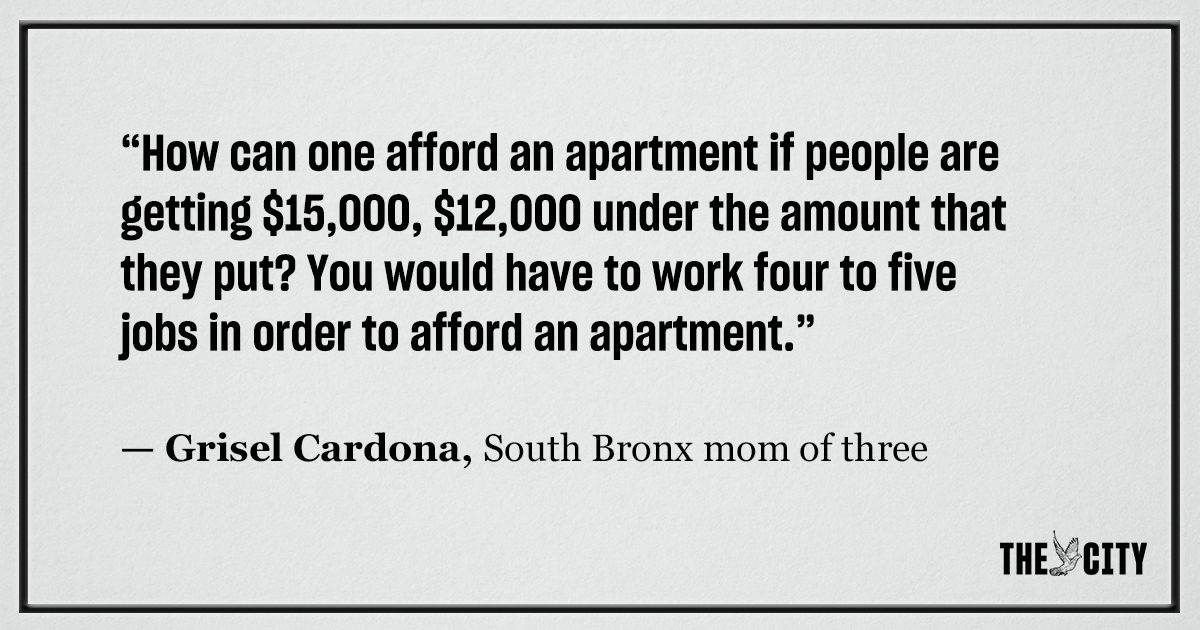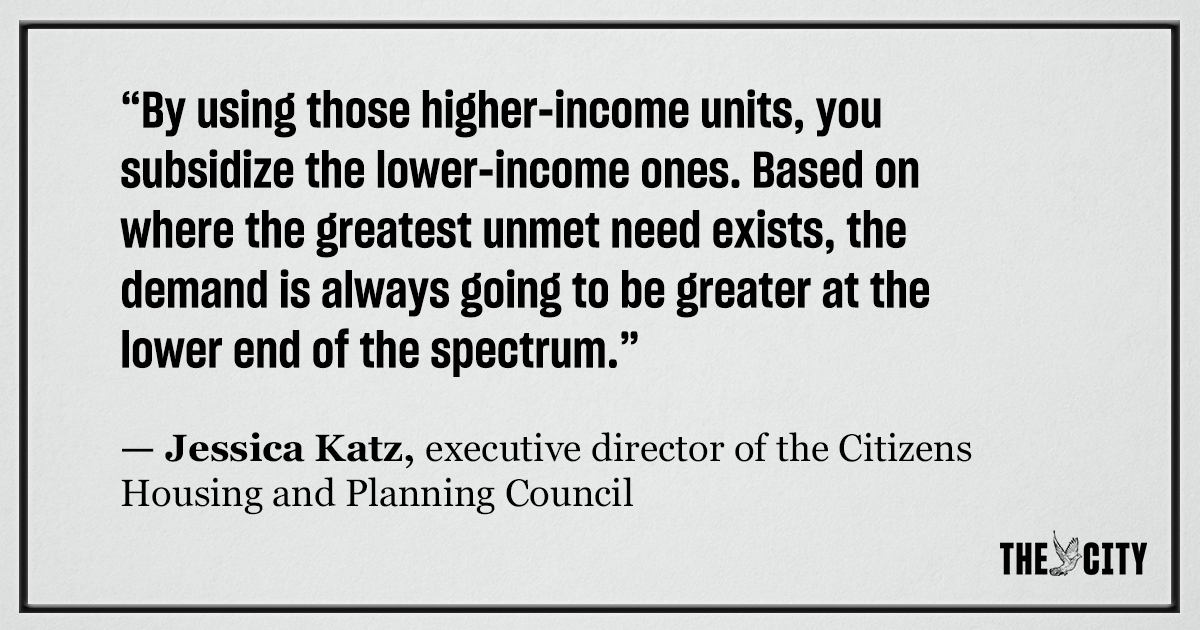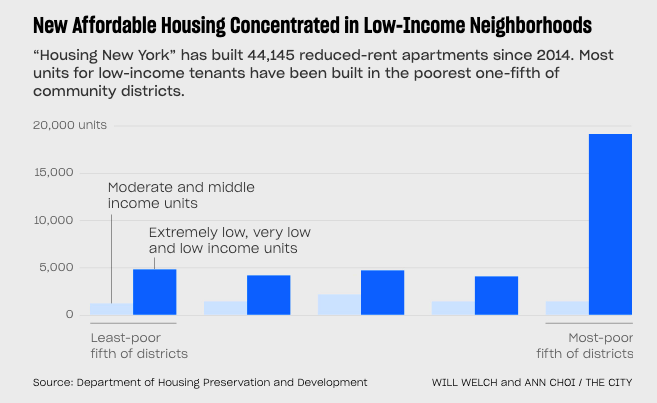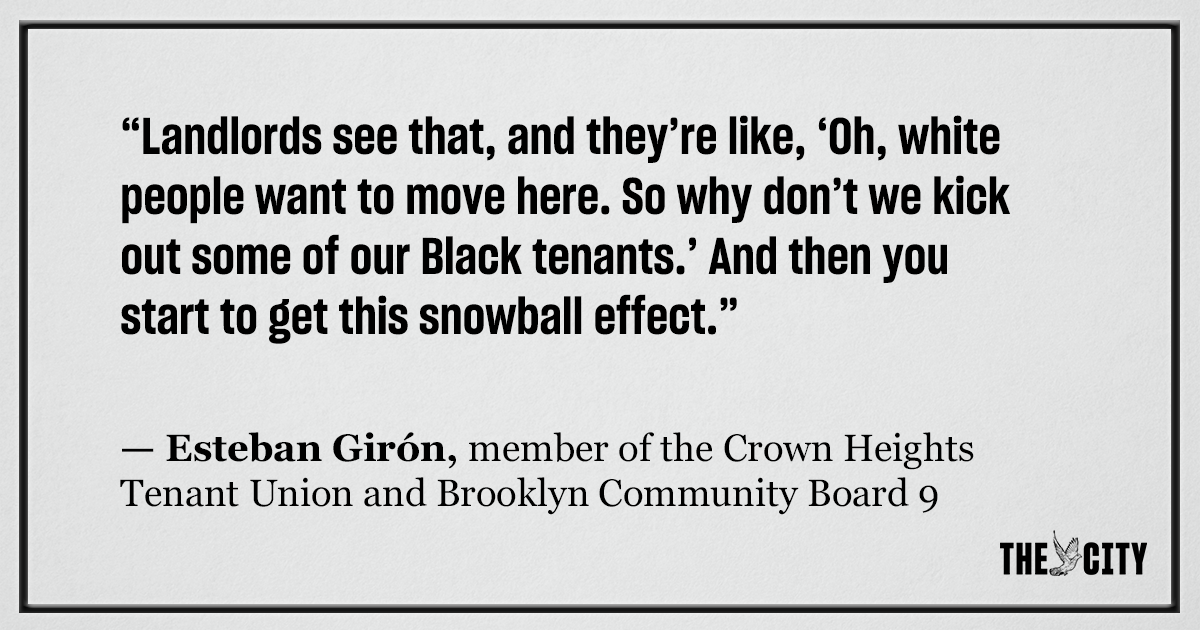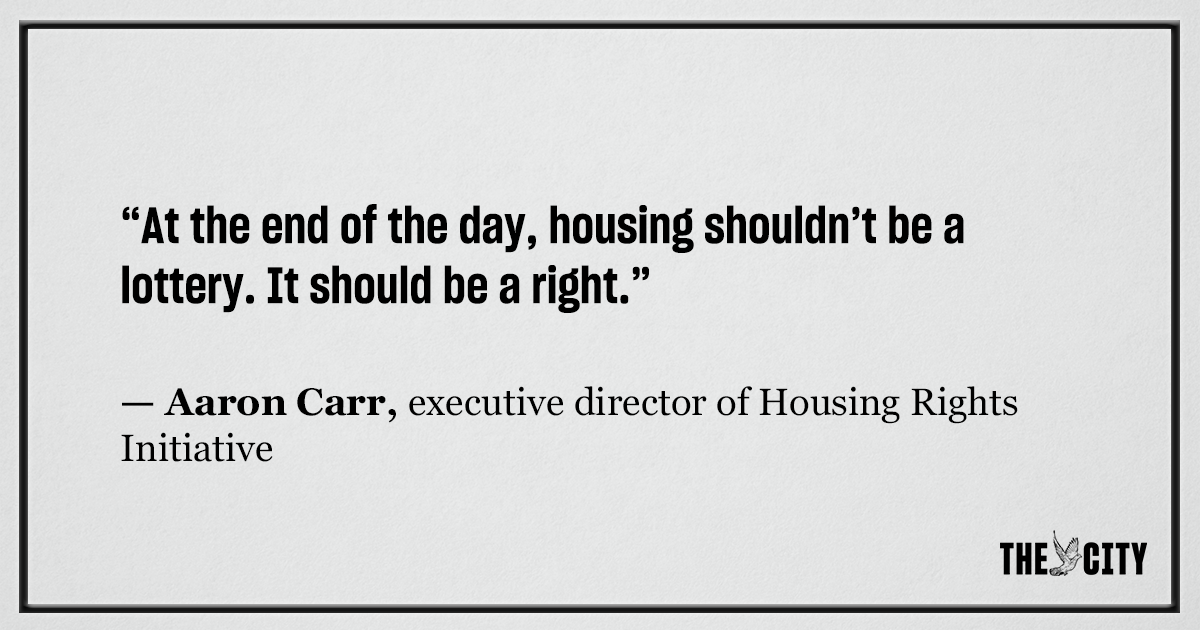1/ We just did an analysis of five years of data from New York City’s housing lottery system and found that those applying with the *highest* incomes are six times more likely to have their number picked than those with the *lowest* incomes.
Let’s break this down.
Let’s break this down.
2/ After analyzing 18 million applications, we found that “extremely low-income” households — earning up to $30,720 for a family of three — faced the *most* competition for apartments.
650 applications came in for every 1 available apartment. https://buff.ly/3evpIGM
650 applications came in for every 1 available apartment. https://buff.ly/3evpIGM
3/ For the apartments with the highest income limits — between $122,880 and $168,960 for a family of three — the competition was the least, with 123 eligible applicants for every 1 apartment.
These families are 6X more likely to have their number come up as poor applicants.
These families are 6X more likely to have their number come up as poor applicants.
4/ Grisel Cardona, a South Bronx mom of three, has applied to the lottery system more times than she can recall over the last decade.
She gets by on about $18,000, from disability payments for her children — her eldest, 9, and youngest, 2, both have autism — and food stamps.
She gets by on about $18,000, from disability payments for her children — her eldest, 9, and youngest, 2, both have autism — and food stamps.
5/ At $18,000 per year, her family falls into the extremely low-income category, but income minimums on lottery advertisements hardly ever match what she makes. Meaning: Her income is so low that it doesn’t even qualify for most of these affordable units across the city.
6/ We found that in five years, there were just *nine* apartments available for her income category and family size through the lottery.
Nearly 10,000 eligible applications came in for those units, or 1,107 applications per apartment.
Nearly 10,000 eligible applications came in for those units, or 1,107 applications per apartment.
7/ Her latest rejection from HPD was for a building in Downtown Brooklyn where the minimum income was set at $105,326, an email from HPD said.
Before that, she was rejected from an apartment in Upper Manhattan, where the minimum income for applicants was $49,770.
Before that, she was rejected from an apartment in Upper Manhattan, where the minimum income for applicants was $49,770.
8/ The reason it is so difficult for poor New Yorkers to win a spot in the lottery is also why much of New York’s affordable housing gets built at all.
The practice of mixing wealthier and low-income tenants is baked into the financing for costly construction.
The practice of mixing wealthier and low-income tenants is baked into the financing for costly construction.
9/ Thanks to budget woes brought on by the coronavirus pandemic, the future of the lottery system is under stress and competition for affordable housing could get even fiercer.
10/ @NYCMayor has proposed slashing about 40% of this and next years’ HPD building budget, a move that has already threatened to put the brakes on his affordable housing goal to build or preserve 300,000 units by 2026. https://www.politico.com/states/new-york/city-hall/story/2020/04/27/de-blasios-signature-housing-plan-poised-to-take-big-hit-from-coronavirus-1280517
11/ As of the end of March, @NYCHousing has funded 164,204 units toward the 300,000 goal — the bulk of them to preserve existing apartments as affordable in the future. https://citylimits.org/2017/08/07/de-blasios-bigger-fight-isnt-building-housing-but-preserving-it/
12/ Our analysis also found that where someone lives can significantly alter their chances of getting an affordable apartment at all. https://buff.ly/30FtsAD
13/ Mayor Bill de Blasio claims the goal of his housing plan is to ensure residents have options “to live in quality, affordable housing in a variety of thriving neighborhoods.”
14/ But so far, his administration has built new affordable housing in patterns that reinforce existing divides — most often steering the poorest tenants to the poorest parts of the city. https://buff.ly/2ZUvY70
15/ Of the 50,000 new units of affordable housing built or financed since 2014, more than half are in just 10 predominantly Black and Hispanic neighborhoods, from East New York in Brooklyn to Mott Haven in The Bronx, Department of Housing Preservation and Development data shows.
16/ In the city’s 10 whitest districts, just 2,700 new affordable units have been generated through the program.
17/ That uneven distribution of apartments among the 300,000 units the mayor promises to build or preserve by 2026 concentrates low-income Black and Latinx tenants in low-income areas.
AND skews the odds dramatically between different neighborhoods.
AND skews the odds dramatically between different neighborhoods.
18/ A pending federal civil rights lawsuit, Noel v. City of New York, argues this separation amounts to illegal racial segregation because giving local applicants an edge further concentrates Black residents in heavily Black neighborhoods, white residents in white areas.
19/ Data also shows competition is fiercest for apartments in predominantly white neighborhoods.
For example, apartments in majority-white Greenpoint received more than double the applications from outsiders than majority-Black community districts — such as Crown Heights.
For example, apartments in majority-white Greenpoint received more than double the applications from outsiders than majority-Black community districts — such as Crown Heights.
20/ The disparity is felt acutely by Black New Yorkers.
In a recent report on anti-Black racism from the city’s Commission on Human Rights, frustration with the housing lottery came through.
https://buff.ly/2ZRfFrz
In a recent report on anti-Black racism from the city’s Commission on Human Rights, frustration with the housing lottery came through.
https://buff.ly/2ZRfFrz
21/ Some advocates seeking to reform de Blasio’s housing plan see the pandemic and the current economic situation as a chance to reexamine the uneven foundations of the housing lottery.
22/ Possible ideas for rethinking the system include:
- community land trusts (a nonprofit organization takes
ownership of property for future development)
- land banking
- investing in public housing again
- converting hotels into SRO residences. https://buff.ly/3hu0vyn
- community land trusts (a nonprofit organization takes
ownership of property for future development)
- land banking
- investing in public housing again
- converting hotels into SRO residences. https://buff.ly/3hu0vyn
23/ We've tagged the housing resources/ nonprofits mentioned in these articles. This list isn’t exhaustive, but might be helpful to those navigating the housing lottery system:
@residenewyork
@chpcny
@IMPACCTBrooklyn
@communityp
@housingrightsNY
@CHTenantUnion
@antibiaslaw
@residenewyork
@chpcny
@IMPACCTBrooklyn
@communityp
@housingrightsNY
@CHTenantUnion
@antibiaslaw
24/ To read HPD’s effort to expand housing integration and fair housing enforcement, go here: https://wherewelive.cityofnewyork.us/
25/ Have you ever applied for affordable housing through NYC Housing Connect? We want to know more about your experience. https://docs.google.com/forms/d/e/1FAIpQLSeJrmfyvpeRPQGLD4L6aRIkRWRkuthfEK8K16GNLi8hAfdsjA/viewform
26/ and while you’re here, don’t forget to sign up for our daily newsletter: http://eepurl.com/gdQ5on

 Read on Twitter
Read on Twitter
